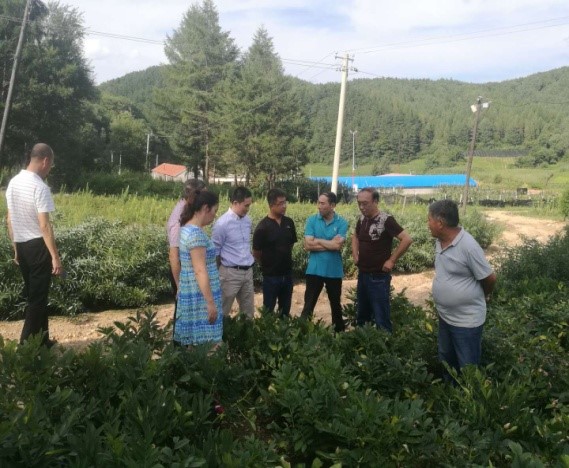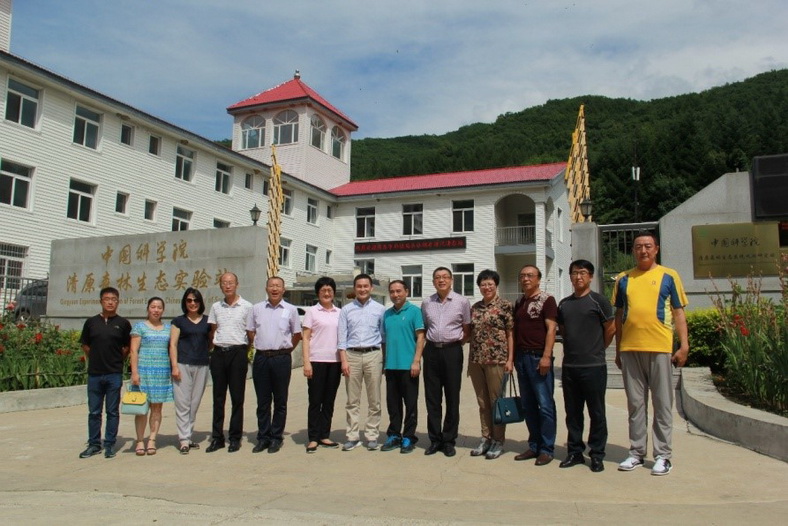On August 17, 2018, LIU Li, deputy director of Dandong Municipal Science and Technology Bureau and other eight people from Dandong Academy of Agricultural Sciences, Dandong Pharmaceutical Group as well as Kuandian County S&T Bureau visited Qingyuan Forest Ecosystem Research Station and investigated forest understory economic development. FANG Yunting, deputy director of the Institute of Applied Ecology (IAE), Chinese Academy of Sciences (CAS), XU Yanhui, director of Dandong Yucheng Center of the Shenyang Branch of CAS and deputy director of Dandong S&T Bureau, LI Fuguang, vice county mayor of Qingyuan Autonomous County (hereinafter referred to as "Qingyuan County") and other comrades from IAE and Qingyuan S&T Bureau accompanied the delegation from Dandong. A forum was hosted by JING Hongshuang (deputy division chief of S&T Division of IAE).
At the forum, FANG briefly talked to the visitors about IAE. WANG Dongmei, director of the Qingyuan S&T Bureau, gave a talk on the natural resources and understory economic development of Qingyuan County. YU Lizhong, deputy head of Qingyuan Station, outlined the history of Qingyuan Station and the technology promotion issues concerning understory resources exploration. LIU Li said that he heard that scientists at IAE and Qingyuan station greatly promoted forestry economic development by conducting studies on forest understory resources. The main purpose of this visit to Qingyuan was to bring back the advanced experience and technology to improve the economy of counties in Dandong.
After the forum, the Dandong delegation visited the American ginseng planting demonstration base at the Red River Valley herbal medicine planting cooperative in Changsha Village, Dasuhe Town, the Aralia elata Planting Demonstration Base in Dabiangou Village, Wandianzi Town, and the herbal medicine planting demonstration base in Ying’ermen Town. The two sides conducted in-depth and extensive exchanges on techniques of understory planting (e.g., screening and cultivation of Chinese herbal medicine varieties) as well as the cooperation and marketing issues.
After the field investigations and on-the-spot exchanges, the two sides decided to cooperate in various fields (e.g., experimental station establishment, forest resource conservation, and understory resource utilization) to make contributions to forest conservation and economic development in mountainous areas of eastern Liaoning province.


